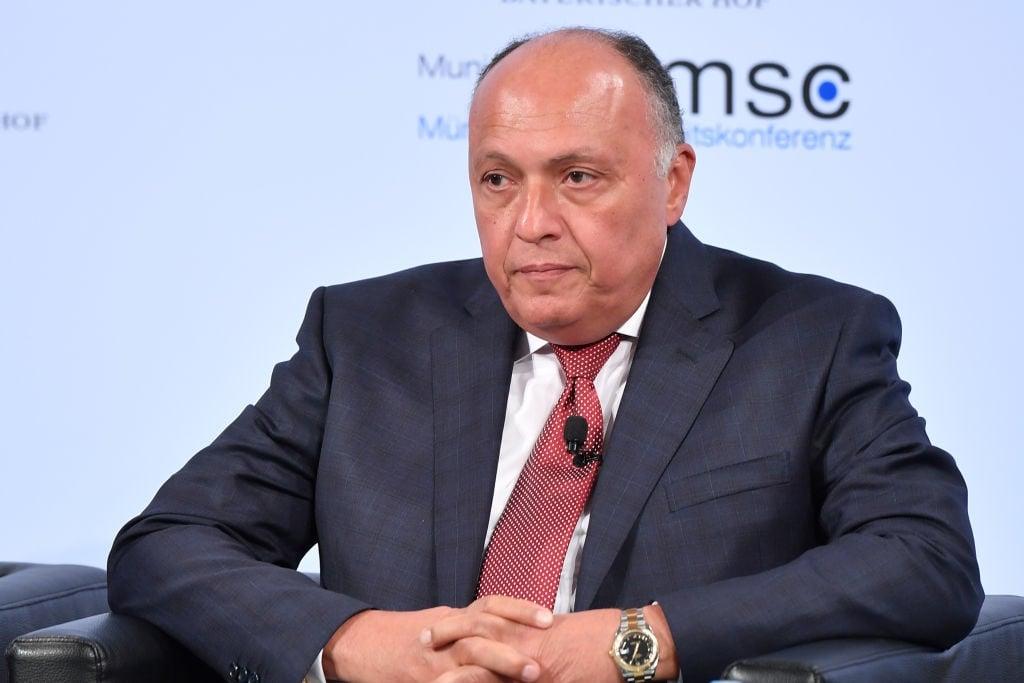Africa-Press – South-Africa. South Africa is confident that this year’s UN climate talks could prove to be a “success” for the African continent, as a draft outcomes text has been released.
The climate summit, COP27, which is a gathering of close to 200 parties, has run over time as negotiators have been battling to find consensus on critical issues related to climate action. These include finance to enable developing countries to respond to the climate crisis and more ambition to phase out fossil fuels to limit warming to 1.5 degrees Celsius.
A draft text on these issues was published by the Egyptian COP27 Presidency on Saturday afternoon, which was largely welcomed by South Africa. South Africa has been pushing for climate finance for developing and vulnerable nations to be able to adapt to harsh climate impacts such as droughts and flooding, as well as the decision to establish a fund to cover the cost of loss and damage.
“On balance, the draft text suggests there can be good progress on implementation, and we are confident that we are well placed to call this African COP a success,” a statement issued by the Department of Forestry, Fisheries and Environment (DFFE) read.
The draft text acknowledges the need to address loss and damage felt by vulnerable nations and the importance of maintaining the 1.5°C target to limit future loss and damage. It also acknowledges the need for “new, additional, predictable and adequate” finance to assist developing countries which are “particularly vulnerable” to the effects of climate change. It also agrees to establish “new funding arrangements” for loss and damage.
But this is still a draft, and a final decision is yet to be made. Last year, the draft text which was finally adopted at COP26 was known as the Glasgow Climate Pact.
The DFFE, in its statement, highlighted that the draft also speaks to solutions to the climate crisis while considering the sustainable development goals, the importance of just transitions so no one is left behind, and the need for reforms in the financial sector.
“The proposal to seek multilateral consensus on making financial flows consistent with pathways towards low emissions and climate resilient development will open new investment opportunities in Africa for clean energy investments that will equally address the continent’s energy poverty crisis,” the DFFE said.
Over the past two weeks, world leaders, including President Cyril Ramaphosa, have been calling for the reform of multilateral development banks – to meet the climate financing needs of developing nations without exacerbating their debt burdens.
The DFFE, however noted that further work is needed on the part of developed nations to meet their financial obligations. Wealthy nations have failed to meet the target of raising $100 billion in climate finance each year by 2020.
At a briefing earlier on Saturday, Tasneem Essop, executive director of Climate Action Network – which includes over 1 800 civil society organisations demanding climate action – noted that developed nations which are historical emitters had not provided the finance they committed to.
“They did not do it in more than a decade. No finance. The $100 billion was not delivered. They have not provided the doubling of adaptation funding that they committed to.”
Essop also took issue with developed nations “backpedalling” on their commitments to reduce emissions by reverting to coal amid the energy crisis. The backsliding has also been raised as an issue by Forestry, Fisheries and Environment Minister Barbara Creecy,
“Right now, rich nations are on the wrong track to achieve 1.5°C and are shifting the blame on developing countries and not delivering finance to help the developing countries…,” she lamented.
Essop warned that if there is no urgent action, the devastation of the floods in Pakistan and the drought in the horn of Africa, which is causing famine, will become more frequent and devastating in future.
At the same briefing, Mohamed Adow, founder and director of Power Shift Africa, added that because the climate negotiations are taking place on African soil, the expectation has always been that it would deliver on the continent’s priorities and that of vulnerable countries. This is why agreement on adaptation support and loss and damage have been so important.
The Centre for Environmental Rights (CER) issued a statement sharing that the proposals in the draft do not respond to the “scale and urgency” of the climate crisis. This is especially because the draft does
not include a commitment to phase-out fossil fuels. “Despite the push from both civil society and the scientific community, it is deeply concerning that
the draft text does not include a commitment for the phase-out of all fossil fuels, including gas. No commitment to an accelerated phase-out of coal has
been achieved either, which means we have made no progress since Glasgow on this,” said the CER’s climate advocacy lawyer Brandon Abdinor. The CER however welcomed calls to reform the global
financial system. The CER’s executive director Melissa Fourie pointed out that the draft does not include the right to a healthy environment. “Climate
change is a human rights issue, and without a rights-based approach we will not make the progress we need to achieve climate justice for all,” said Fourie.
For More News And Analysis About South-Africa Follow Africa-Press






